
Why I Vanished from Social Media
I wish I could say there was only one reason. But there was definitely a primary reason. The last two months have been a little rough for my family. My little sister had a major stroke. For those of you who've had a loved one go through this you'll understand perfectly what I mean. It's sudden, unexpected, and unfortunately my sister didn't make it to the hospital in time to get the medication that would have saved her from the more severe damage. So there we were: a family in turmoil having to make major decisions regarding my sister's life.
Truly, social media had become habitual chaos. Posting, commenting, liking, sharing across four--sometimes five--platforms can be a lot. When real life happens, suddenly it can appear to be a little absurd. With the challenges of new circumstances, clicking on a social media icon was too difficult. My little sister's life was forever altered, and there was a window when we weren't sure if she would survive. So eventually, I went onto all my social media sites and just deleted them. One after the other and in a matter of a seconds they were all gone. And there was something empowering about that moment. I knew what mattered most and I was going to give it my full attention.
There was a part of me that felt a little guilty. I had released my debut novel in late July and had been plugging away on social media to promote the book. I met many great folks. Sometimes I wished I had that back again. The playful comments and genuine connections. There are a ton of kind and generous people out there. Right now my days are filled with juggling my kids' needs, helping with my little sister, and continuing to serve in Indian Child Welfare. We just finished Cherokee Nation's Angel Project where we gave Christmas gifts to 2,800 Cherokee children in need. We made Christmas a little brighter for some of our most impoverished citizens. I also got to spend quality time with my daughters, and worked with my little sister to help her speak again. It's been busy and trying in profound ways.
I'm grateful, and I've been good about being grateful, but maybe I'm a little more grateful these days. Maybe sometime in the future I'll start my social media back up again. If a new normal ever sets in. For the time being, I'll be posting here on my blog. It's much more straight forward and easy to engage with. Right now I need to keep my life simple to get through.
A Call to Gurus
This article is a confession to my gurus. Well, maybe more of an apology. Or a humble request for forgiveness. Okay, it's a mixture of all three. Sometimes I can be an asshole. More so when I was younger and before life kicked my sorry brown ass into submission. People say they love writers who have had the life beaten out of them. That'll be my remaining solace in this whole matter: I'm only likable after bruises on the side of the face and a gash near the hairline.
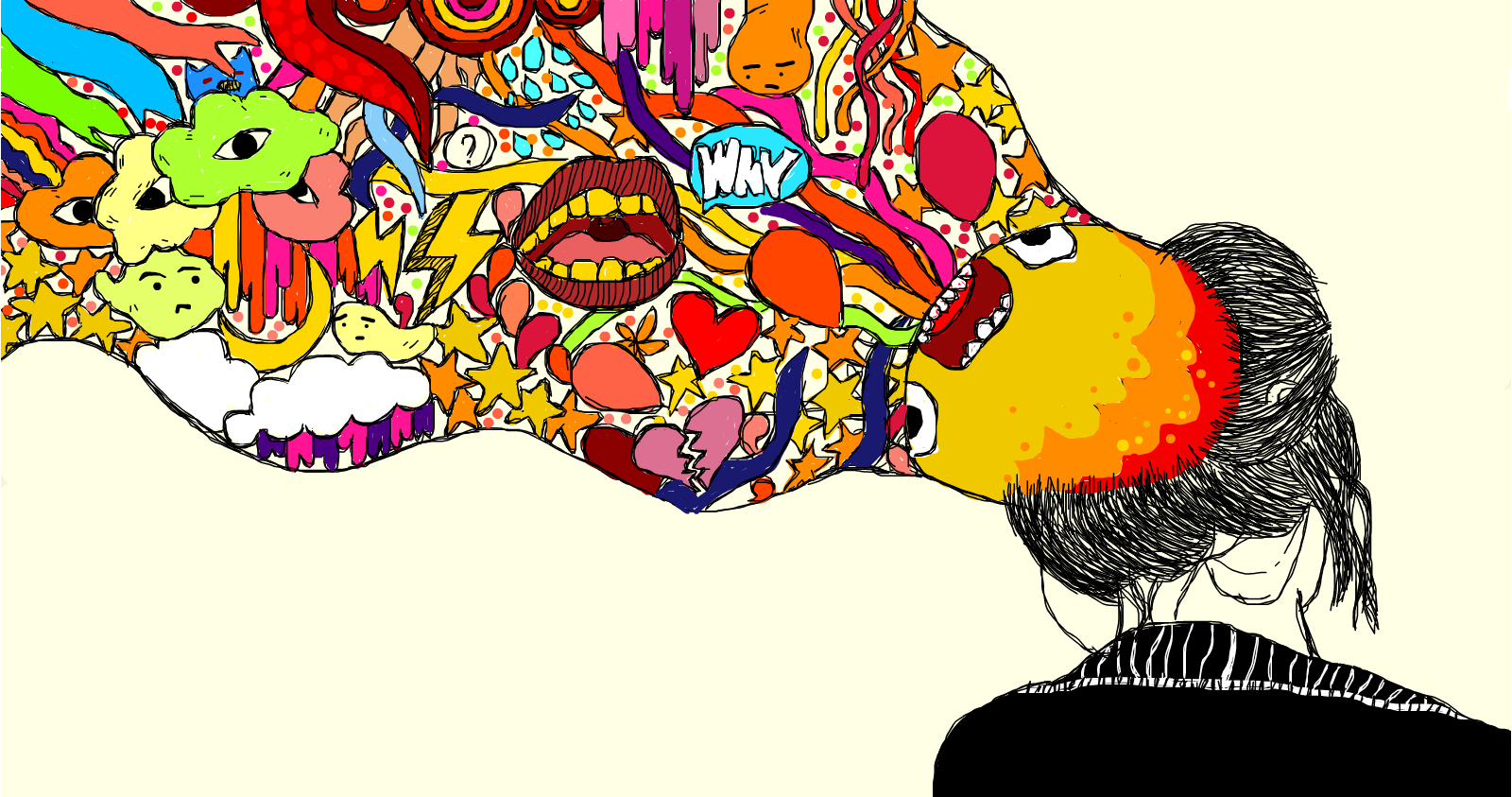
I was eight years old when I got into my first major argument with a teacher. I could've been seven, but I was young. In elementary school. What was the argument about? Or what passion could be evoked in an eight year old child that would set him off? It wasn't the obvious, like video games, food, or toys. It was spiders. Yup, the whole argument was about spiders. My stance was that spiders were evil. Yes, evil. My teacher kindly tried to enlighten me about the role of spiders in the cosmos. But I wouldn't hear it! "No! Spiders are evil!" I told her. And thus began my attack on gurus.
I'm a peace loving person, despite what we've seen so far from my eight-year-old self's stance on spiders (and, interestingly enough, my childhood nickname was Spider and family on my Kiowa side still call me Spider).
 But when it came to teachers I've always had an odd and subtle defiance. But before we get too far into this business, you'll want to know what triggered me to write this article. I had an email exchange with someone who rightly pointed that I needed to make things right, that I had a history, going back lifetimes, where I insulted teachers and this was hurting my ability to grow as a person. There was nothing I could say in return. She was right. She hit the proverbial nail on the head, leaving me speechless.
But when it came to teachers I've always had an odd and subtle defiance. But before we get too far into this business, you'll want to know what triggered me to write this article. I had an email exchange with someone who rightly pointed that I needed to make things right, that I had a history, going back lifetimes, where I insulted teachers and this was hurting my ability to grow as a person. There was nothing I could say in return. She was right. She hit the proverbial nail on the head, leaving me speechless.
This has extended into my adulthood and it runs so subconsciously that I recently inserted an attack on a teacher in a recent article: From Tommy Orange to the Institute of American Indian Arts: Plains Tribes Battle for “Powwow” Terminology in Contemporary America. What's wrong with me? I didn't name any names and wouldn't anyway, but to see this play out as recently as last week is astonishing.
“I am not a teacher, but an awakener.” -- Robert Frost
Certainly, while I was at the Institute of American Indian Arts I was a pain in the ass. My professors are nice to me about it all. I was young and they're forgiving (thankfully). But this affected me to such a degree that this morning I started emailing all my old instructors. One after the other. I told them how much I appreciated their guidance and apologized for being an idiot. Time is the best teacher of all, and time says to appreciate people while they're in front of me. But yes, I emailed numerous teachers this morning. All but one has emailed back so far, and each were appreciative that I reached out (some I hadn't spoken to in nearly a decade).
“Teaching is the greatest act of optimism.” -- Colleen Wilcox
I wish I could find all the teachers I transgressed (and yes it was that many). If push comes to shove, I will. But I figured at minimum I should contact the ones I still had access to and then write this article. Let's call it a start. No one is perfect, certainly, and likely my missteps may have not been to a severe degree, but ultimately that's not up to me to decide. I transgressed and I should apologize. Simple, straightforward, and honest. I know it's not okay (no matter how I justified the actions). Teachers put their wisdom on the line when they offer guidance to their students. So I shouldn't have been so callous.
Support a Native owned Etsy shop, Allies United, where I offer unique merch for allies of social justice movements, like MMIW, Native Lives Matter and Black Lives Matter. Take a look inside my Etsy shop here: etsy.com/shop/AlliesUnited.
Chaotic Resonance of the Echo Chamber
We're tweeting and sharing and posting. We touch on a politically sensitive subject. And we don't hesitate to engage in a friendly dialogue amongst community members. This is how folks learn. The back and forth sway. As we all know, a simple text exchange can quickly turn a meal of delicacies into a food fight.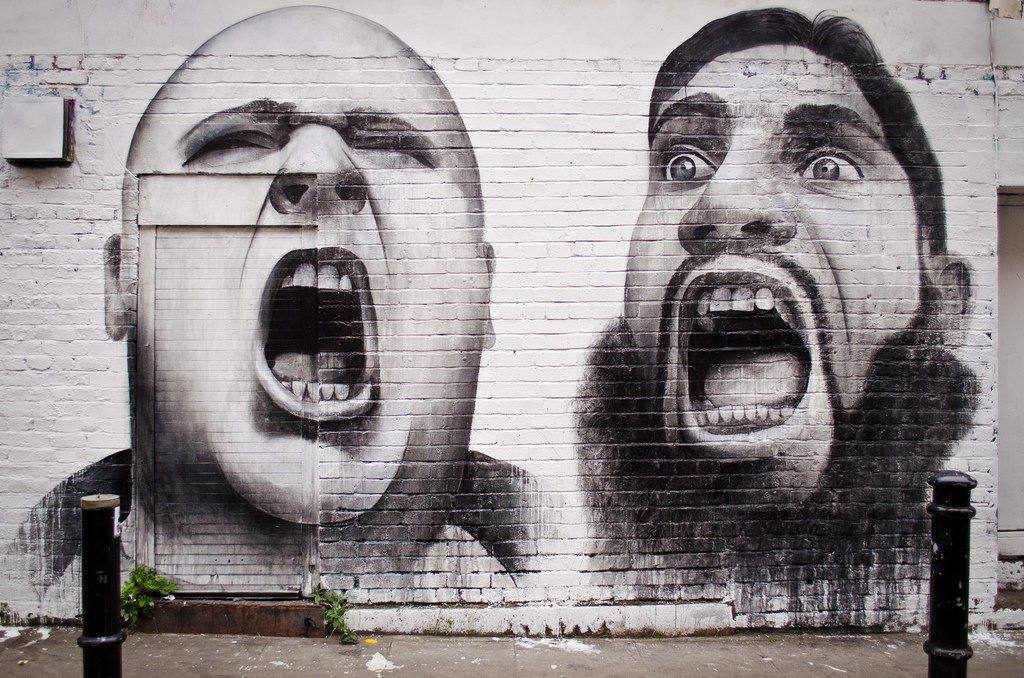 How do you handle these situations? People can get defensive and hurl insults and redirect the conversation to be something personal. Maybe the person was having a bad day and was ready to conflict with anyone, and you happened to be at the wrong place at the wrong time. Or maybe you unknowingly overstepped a boundary. Either way, an issue was created. Then we must determine: Is this salvageable? Or do we part ways?Social media allows us to develop online allies who echo our sentiment, but our allies might not share the same ideology so there can be conflict. Being an ally doesn't mean we're supposed to agree on every angle of an issue. We might agree on the issue, but the approach can be different. Allyship also doesn't mean people have license to verbally abuse someone. I don't get to attack you because you misunderstand a nuance within Native culture. And vise versa. You don't get to attack me for advocating for my tribal communities. It's a frail rope we walk, but one worth walking. And will pave a path for new methods in forming society. First, we must productively engage.Since social media disassociates physical proximity from verbalized ideology, how do you respond to issues of contention? Do you immediately block someone? Do you withhold your thoughts to save an argument? Do you ask someone to take a break from the exchange? Or do you repeatedly engage until either you or the other person grows tired enough to unfollow and block? How do you handle the chaotic resonance of the echo chamber?
How do you handle these situations? People can get defensive and hurl insults and redirect the conversation to be something personal. Maybe the person was having a bad day and was ready to conflict with anyone, and you happened to be at the wrong place at the wrong time. Or maybe you unknowingly overstepped a boundary. Either way, an issue was created. Then we must determine: Is this salvageable? Or do we part ways?Social media allows us to develop online allies who echo our sentiment, but our allies might not share the same ideology so there can be conflict. Being an ally doesn't mean we're supposed to agree on every angle of an issue. We might agree on the issue, but the approach can be different. Allyship also doesn't mean people have license to verbally abuse someone. I don't get to attack you because you misunderstand a nuance within Native culture. And vise versa. You don't get to attack me for advocating for my tribal communities. It's a frail rope we walk, but one worth walking. And will pave a path for new methods in forming society. First, we must productively engage.Since social media disassociates physical proximity from verbalized ideology, how do you respond to issues of contention? Do you immediately block someone? Do you withhold your thoughts to save an argument? Do you ask someone to take a break from the exchange? Or do you repeatedly engage until either you or the other person grows tired enough to unfollow and block? How do you handle the chaotic resonance of the echo chamber?
Support a Native owned Etsy shop, Allies United, where I offer unique merch for allies of social justice movements, like MMIW, Native Lives Matter and Black Lives Matter. Take a look inside my Etsy shop here: etsy.com/shop/AlliesUnited.
(Image above was borrowed from Flickr)
The Art of Reaction & Trusting Our Protectors
One of the beautiful behaviors of people is our need to protect. We don't like bullies. This becomes more the case the older we get. There is something about seeing someone being treated terrible that we can't stand. Maybe it's a new comer who is unjustly getting targeted, or it could be someone vulnerable who doesn't have the means to stand up for themselves. Either way, when you see opportunists attacking someone, you can be assured the protectors will come out if full force. Those of us in the arts industry know all too well the backlash an artist can receive because of their popularity. Here you are doing your best work and putting all your energy into the art you are creating, and when it's time to showcase to the world what you've created, the bottom-feeders come out of the woodwork. They're like sharks sneaking up on you from small and unsuspecting places.Having been in and then out and then back in these environments I've learned a few things, and I'm going to give you a little insight on how to understand and work with the negative energy.
Those of us in the arts industry know all too well the backlash an artist can receive because of their popularity. Here you are doing your best work and putting all your energy into the art you are creating, and when it's time to showcase to the world what you've created, the bottom-feeders come out of the woodwork. They're like sharks sneaking up on you from small and unsuspecting places.Having been in and then out and then back in these environments I've learned a few things, and I'm going to give you a little insight on how to understand and work with the negative energy.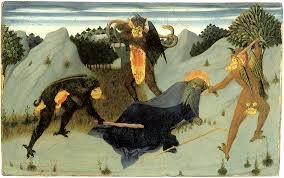 The first thing to understand is people are not going to stop. We can dream all day of the "what if" and how things "should be." There are people who gain energy from being positive and creating beautiful things, including beautiful relationships, and there are people who are energy vampires and they will attempt to use their negativity to tear you down. In fact, I'm sure there are bottom-feeders reading this post right now who can't wait to attack me for writing it.Here's the trick. Trust people to be who they are. If they're known for attacking people to build themselves up then they're always going to do so. Now, since you've picked out the bottom-feeders and you know how they are going to react, you can create your own reactions--not in a defensive tone but in a tone and advocacy for the positive things your doing. Just remind them and anyone listening of the good things your work is focused on. What will happen? One, they're not getting the negative response to feed themselves, and, two, you're giving people in your circles the opportunity to see the injustice. It'll show the clear avenue of negativity coming from the bottom-feeder.Next you'll start to see other people come to your defense. The protectors will step up and say, "She's doing good things for her people," in effect, and "She's trying to help," more or less. They're going to stand up for you. Why? Because you've helped them see the positive things you are doing. We have to remember: these bottom-feeders want people to only see the negativity. Everything they do will always come back to something ugly. They're incapable of doing it any other way. In response, we must be prepared to "show" and "describe" the positive aspects of our art. When the protectors can see, meaning visualize, how you are making your community better, then they are more willing to champion your cause.To a certain degree, exercising some savvy, you can set up these bottom-feeders for failure. Just keep putting yourself out there. At some point, they will attack you. Remember how I said, "Trust people to be who they are." Then when they do so. Take your opportunity to call the community to action. Remind them of the good you're doing and how you're bettering the community. It'll leave the bottom-feeders getting attacked for being so negative, and in the process you gain the solidarity the bottom-feeders are trying to disrupt.
The first thing to understand is people are not going to stop. We can dream all day of the "what if" and how things "should be." There are people who gain energy from being positive and creating beautiful things, including beautiful relationships, and there are people who are energy vampires and they will attempt to use their negativity to tear you down. In fact, I'm sure there are bottom-feeders reading this post right now who can't wait to attack me for writing it.Here's the trick. Trust people to be who they are. If they're known for attacking people to build themselves up then they're always going to do so. Now, since you've picked out the bottom-feeders and you know how they are going to react, you can create your own reactions--not in a defensive tone but in a tone and advocacy for the positive things your doing. Just remind them and anyone listening of the good things your work is focused on. What will happen? One, they're not getting the negative response to feed themselves, and, two, you're giving people in your circles the opportunity to see the injustice. It'll show the clear avenue of negativity coming from the bottom-feeder.Next you'll start to see other people come to your defense. The protectors will step up and say, "She's doing good things for her people," in effect, and "She's trying to help," more or less. They're going to stand up for you. Why? Because you've helped them see the positive things you are doing. We have to remember: these bottom-feeders want people to only see the negativity. Everything they do will always come back to something ugly. They're incapable of doing it any other way. In response, we must be prepared to "show" and "describe" the positive aspects of our art. When the protectors can see, meaning visualize, how you are making your community better, then they are more willing to champion your cause.To a certain degree, exercising some savvy, you can set up these bottom-feeders for failure. Just keep putting yourself out there. At some point, they will attack you. Remember how I said, "Trust people to be who they are." Then when they do so. Take your opportunity to call the community to action. Remind them of the good you're doing and how you're bettering the community. It'll leave the bottom-feeders getting attacked for being so negative, and in the process you gain the solidarity the bottom-feeders are trying to disrupt.
Support a Native owned Etsy shop, Allies United, where I offer unique merch for allies of social justice movements, like MMIW, Native Lives Matter and Black Lives Matter. Take a look inside my Etsy shop here: etsy.com/shop/AlliesUnited.
(The images used in this post were borrowed from Wikimedia and Wikipedia)
Susceptibility to Structuralism's Manipulation of Self-Preservation
I like to think I'm too smart to be manipulated. I have a Master's Degree. I'm an avid reader and writer. Critical and creative thinking is my business. Then I attend one of those Hollywood productions (of the better variety, like Life of Pi), and despite my knowledge of all those structural techniques I still find myself being moved, with the simple use of music and cinematography. What?! No. Not me.
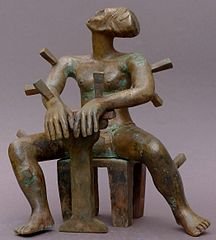 Does that make us susceptible? I don't know...maybe. Where it becomes dangerous is on the sociopolitical landscape. I ask myself this questions from time to time: How can people stay narrow minded? If I'm in a grumpy mood, I might think people just don't have the intelligence to witness dynamics in the macro. On an average day, I think people don't have access to an educational system to give them opportunity to think critically about their social situations. But in an age when you can gather an Associates Degree education on any subject through the use of YouTube, then that theory goes out the window. Then if you also consider how pop culture continuously offers people opportunities to think critically about serious issues. It starts to seem like people are choosing to be susceptible.
Does that make us susceptible? I don't know...maybe. Where it becomes dangerous is on the sociopolitical landscape. I ask myself this questions from time to time: How can people stay narrow minded? If I'm in a grumpy mood, I might think people just don't have the intelligence to witness dynamics in the macro. On an average day, I think people don't have access to an educational system to give them opportunity to think critically about their social situations. But in an age when you can gather an Associates Degree education on any subject through the use of YouTube, then that theory goes out the window. Then if you also consider how pop culture continuously offers people opportunities to think critically about serious issues. It starts to seem like people are choosing to be susceptible.
Nothing we do is that simple. It'd be great if we could just end there. There is something resonate about thinking, "People are inherently smart enough to broaden their intellectual perspective, but choose to stay susceptible," and in a certain sense it's true but there's a little more to it.
Your existence is dependent on being accepted by a certain group of people. If the majority of the people in your family and circle of friends are racist, homophobic, domineering, and destructive, then in order for you to survive you must accommodate those values so as to retain connection to the people who have shown you love and support your entire life. Yeah, ideally we would be brave and do the work to change those family members, but most people are not thinking about bravery, people think about survival.
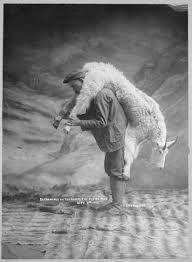 Self-preservation will dictate that you will conform to your surroundings. We see this all the time. A woman stays in a relationship with a guy who has a lower intelligence and she will keep herself dumb. Why? For love. We're social animals and need connections with other people. Unless you have Aspersers Syndrome like me and are socially inept, then you're going to conform.
Self-preservation will dictate that you will conform to your surroundings. We see this all the time. A woman stays in a relationship with a guy who has a lower intelligence and she will keep herself dumb. Why? For love. We're social animals and need connections with other people. Unless you have Aspersers Syndrome like me and are socially inept, then you're going to conform.
People are choosing susceptibility out of survival. In our society, you really have to work to stay ignorant, you have to work hard to dehumanize entire groups.
So outside of self-preservation, why would we spend so much energy on justifying the most negative parts of ourselves? At this point, Girard's theory of the memesis makes the most sense. Largely, it makes sense to me because it coincides with my ideas of self preservation and modalities of collectives staying unified.
I'm not going to break down Girard in it's entirety. You'll have to do that work, but in short Girard posits individuals and groups mimic desire and desire creates conflict between individuals and groups (mimetic rivalry) attempting to satisfy the same desire. This goes beyond resources. It rolls over into abundance as well. I would even argue mimesis is more intense in abundance. Maybe mimesis doesn't even start until human populations reach abundance. But I should save that argument for another nerdy post. Oh, yeah, in short... To calm the conflict (the problems of conflict), we create a scapegoat. So we place all the blame on something, someone, somebody, some people, anything that will unify the group who were fighting amongst themselves. We sacrifice the scapegoat and then we worship the scapegoat.
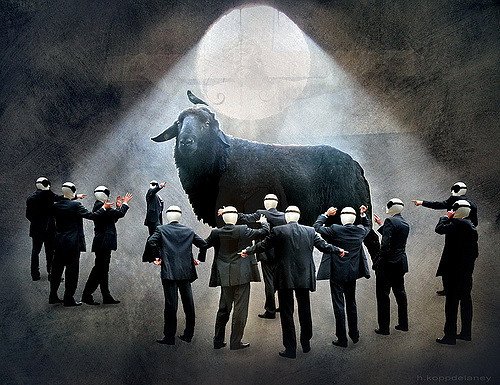
I'm going to take Girard one step further. I don't think it's only desire that triggers the scapegoat mechanism. Yes, desire creates conflict (I'll give him that). But it's the stress triggered by the conflict that triggers the scapegoat mechanism in people. So I argue that stress is the primary trigger for scapegoating. But more or less, stress will keep us narrow minded. It forces us into a position to find a scapegoat (i.e., racism, sexism, homophobia, etc.). All this is archaic, but we do it everyday. Remember how I started this post? With the Hollywood structuralism comment? Yeah, it's the same deal.
When you get stressed at work, what do you do? Do you reflect on your own inadequacies? Make adjustments? Move forward? Maybe if your degree is in psychology, but for most of us we find someone else in the office to blame. We see this all the time as well. There are changes at the office, and then all the workers panic, and then one person starts getting bullied more so than others in the group. Said individual starts to consider changing jobs. They quit. Then you rehearse who that person was and what they were like and how you didn't like them over and over and over and over and over and over, you keep talking about the poor fool you sacrificed and sent into the wilderness. Yup, you were made into a social dupe by one simple structural technique: stress.
Does that mean you're keeping yourself susceptible? Or you are not intelligent enough to see through the veil? No. That's not the case. You've been played by those who structure society in the same way Hollywood structures movies. Play the right music, show the right cinematography, and like magic: You follow.
Support a Native owned Etsy shop, Allies United, where I offer unique merch for allies of social justice movements, like MMIW, Native Lives Matter and Black Lives Matter. Take a look inside my Etsy shop here: etsy.com/shop/AlliesUnited.
Arachnid Vs Reptilian: The Thirst for Brutality in Controversial Topics
The fangs of a snake might seem to overpower the fangs of a spider, and on the surface it can appear as though the match is uneven. But we can't forget the impulsiveness of the snake and the patience of the spider. And we must remember a black widow sits nicely on the tongue of a viper. Its patience is beyond the fast acting poison in its bite.https://youtu.be/Bt1DDVl5IJAWe like to think of ourselves as civilized. We'd never want to watch two creatures battling it out to the death. And it would true. We don't want to see it. So why do we? Why do we turn on the news and watch as people oppress other people, playing out the dramas of the worst parts of the human condition?This post came about by two interactions. One was with my friend Brandon. When we were walking the track at Northeastern State University here in Tahlequah, Oklahoma, he asked me about my novel. And oh did I tell him. That's one question you have to be careful of. Ask me about my writing and I'm going to talk incisively for about fifteen minutes straight. I'm sure he regretted the question after he asked. The other? It was from an exchange with a fellow blogger here on my website. They left a comment on my post about handling controversial topics in literature, Biting the Hand that Feeds Us: Handling Controversial Topics in Fiction, Art, and Life. Again I started rambling with this individual. I'm a relatively quiet person until you ask me to talk about literature, and then I'm annoyingly vocal.So why is it? Why do we love controversial topics on the news, in books, and at the movies? On the surface we might appear to be diabolical and love to feed off negative energy, and to an extent that might be true for some of us, but ultimately there's more to it.
"There are spiders whose bite can cause the place bitten to rot and to die, sometimes more than a year after it was bitten. As to why spiders do this, the answer is simple. It's because spiders think this is funny, and they don't want you ever to forget them.” -- Neil Gaiman
My novel, Uncle Called Him Spider, features the battle of arachnid (Dean) versus reptilian (Snow). My protagonist (Dean) is arachnid and my antagonist (Snow) is reptilian. Both are unlikable. And to a certain extent you empathize with both as the novel progresses. Since Dean is the protagonist you have a little more reason to root for him but by his ruthless actions you don't really want to. Since you know less about Snow you want to root for her but she is more ruthless than Dean. Seemingly if you knew more about her you might find yourself at a loss of who to champion.So what do you do? The same thing you do when watching a spider and snake fight. As you watch, you can't help but have empathy for both and not want either to die in the battle. But do you turn away? No, you don't. You keep watching. Why? Is it because you want to know the outcome? That would be part of it. But I argue there's a little more.
“To the unspoiled, even a snikebite is a loving kiss. But to the spoiled even a loving kiss is a snake bite.” -- Mikhail Naimy
There's a missing component to modern literary novels. They're soft. Literary novelist are supposed to hold a mirror to society and force us to confront issues like racism. You find more value in a Hollywood movie like Get Out, which confronts liberal racism through the Horror genre. Are contemporary literary novelists pandering? Do they seek to conform to ideological versions of society so as to not insult a privileged and weak-minded audience? Or are literary writers cowards who underestimate the pallet of the modern literary reader?I know, you're wondering why we watch the spider and snake battle to the death. It's because we can see ourselves reflected in the battle. We're looking at a mirror, and by watching the brutality on the news like the brutality of two predators fighting to the death, we have the opportunity to learn something about ourselves. Its introspection we thirst for. We need to see the worst parts of ourselves reflected in others. There is no other way to purge our own bloodlust. And we literary writers should be brave enough to satisfy our readers with the opportunities to self-reflect.
The Magic of Intermountain Youth Center
I said it before. The last grade I completed was the sixth grade. Then later in life I went on to obtain a Master's Degree. I think a lot of it had to do with riding waves. Not in the ocean. I've never been daring enough to take on those types of challenges. But riding waves of opportunity. Sometimes I look back and it's interesting to see how it all lined up and came to fruition, as though in symmetry, like musical notes being plucked from the strings of a guitar. In time and rhythm it can make a beautiful song.So how do you go from being a severe introvert to completing programs in higher education? A lot of luck. A lot of patience. I give most credit to one organization: Intermountain Youth Centers. They were once located throughout New Mexico and had a facility in Colorado, but now they operate out of Arizona only. They are a behavioral health organization, whose beginnings were in Native American communities. When NM state started funneling money toward certain facilities, a place like Intermountain, which specialized in helping Native American youth, started to get less and less funding. In the end, Intermountain was too narrowly focused for New Mexico, who wanted to fund the fewest and least expensive behavioral health facilities. I worked in Santa Fe.There's something about being placed in a position to be a mentor that can change the way you see the world. I was a very negative person. Life was hard and assumed it would always be. When Intermountain employed me to run "strength based" programming with Native youth, I started to change. I had to be a role model who showed positivity for days at a time. If I was going to help these young men, I would need to follow the "strength based" model closely. In other words, I was bought into the organization. I believed in its philosophy.What happened? I went from being so negative that most of people reading this post right now would have never associated with me. I was not the type to draw people in. In fact, I was pretty good at pushing people away and keeping people at a distance. From that, I turned into someone who was always filled with gratitude. I was so greatly changed by Intermountain that I'm still guided by its philosophy. And I haven't been with the organization since 2009. I mostly say good things to people. When someone is trying to draw out negativity, I tend to start saying positive things. Not that I don't have my bad days like everyone else. But for the most part I tend to usually be in a good mood and like to focus on solutions and problem solving rather than wallowing in the muck of self pity.
I give most credit to one organization: Intermountain Youth Centers. They were once located throughout New Mexico and had a facility in Colorado, but now they operate out of Arizona only. They are a behavioral health organization, whose beginnings were in Native American communities. When NM state started funneling money toward certain facilities, a place like Intermountain, which specialized in helping Native American youth, started to get less and less funding. In the end, Intermountain was too narrowly focused for New Mexico, who wanted to fund the fewest and least expensive behavioral health facilities. I worked in Santa Fe.There's something about being placed in a position to be a mentor that can change the way you see the world. I was a very negative person. Life was hard and assumed it would always be. When Intermountain employed me to run "strength based" programming with Native youth, I started to change. I had to be a role model who showed positivity for days at a time. If I was going to help these young men, I would need to follow the "strength based" model closely. In other words, I was bought into the organization. I believed in its philosophy.What happened? I went from being so negative that most of people reading this post right now would have never associated with me. I was not the type to draw people in. In fact, I was pretty good at pushing people away and keeping people at a distance. From that, I turned into someone who was always filled with gratitude. I was so greatly changed by Intermountain that I'm still guided by its philosophy. And I haven't been with the organization since 2009. I mostly say good things to people. When someone is trying to draw out negativity, I tend to start saying positive things. Not that I don't have my bad days like everyone else. But for the most part I tend to usually be in a good mood and like to focus on solutions and problem solving rather than wallowing in the muck of self pity.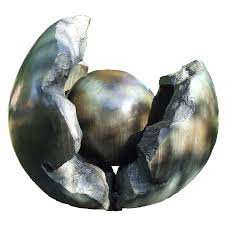 I was with Intermountain for about six years and it took the majority of that time to make the complete transformation. They say every cell in your body is made new by regeneration every seven years. I'd say it was pretty close to that mark. My DNA must have been changed in that space of time. I certainly don't feel like the person I was before Intermountain. Now that I'm back in my hometown of Tahlequah, Oklahoma it's interesting to see how hard it is for people who knew me before to let me change. I don't think people like to let other people change. But that'll have to be a post for another day.All in all: I'm lucky. I interact with people all the time, many in the latter years of their life, and they're miserable people. Ultimately, it's sad. I'm a firm believer in leading by example. My element of persuasion is just being myself. I'm not in the business of recruiting. Largely because it's counterproductive. The next time missionaries knock on your door see how fast you run to the back of the house.I see people who have good hearts allowing themselves to be swallowed by anger, frustration, and hatred. I wish I could give them my experiences at Intermountain so they'd have a chance to change for the better. We do the world service by just being positive and helping each other out. We have to trust and allow people to change on their own time.(Works Cited: Images above were borrowed from intermountcenters.com and maxpixel.com)
I was with Intermountain for about six years and it took the majority of that time to make the complete transformation. They say every cell in your body is made new by regeneration every seven years. I'd say it was pretty close to that mark. My DNA must have been changed in that space of time. I certainly don't feel like the person I was before Intermountain. Now that I'm back in my hometown of Tahlequah, Oklahoma it's interesting to see how hard it is for people who knew me before to let me change. I don't think people like to let other people change. But that'll have to be a post for another day.All in all: I'm lucky. I interact with people all the time, many in the latter years of their life, and they're miserable people. Ultimately, it's sad. I'm a firm believer in leading by example. My element of persuasion is just being myself. I'm not in the business of recruiting. Largely because it's counterproductive. The next time missionaries knock on your door see how fast you run to the back of the house.I see people who have good hearts allowing themselves to be swallowed by anger, frustration, and hatred. I wish I could give them my experiences at Intermountain so they'd have a chance to change for the better. We do the world service by just being positive and helping each other out. We have to trust and allow people to change on their own time.(Works Cited: Images above were borrowed from intermountcenters.com and maxpixel.com)
Capitalism Down the Interstate
I was in grad school when a professor asked, "What metaphor would you use to describe how power structures stay intact?" We were studying Faucoult and had come to his explanation of how individuals give up their power to others, with his example of a moving ship and how everyone does their part to keep the ship moving forward and are in fear of what would happen if the ship stopped moving. I agree with Faucoult's analogy. It makes sense in most situations. In a modern context though, I'm thinking more along the lines of interstates.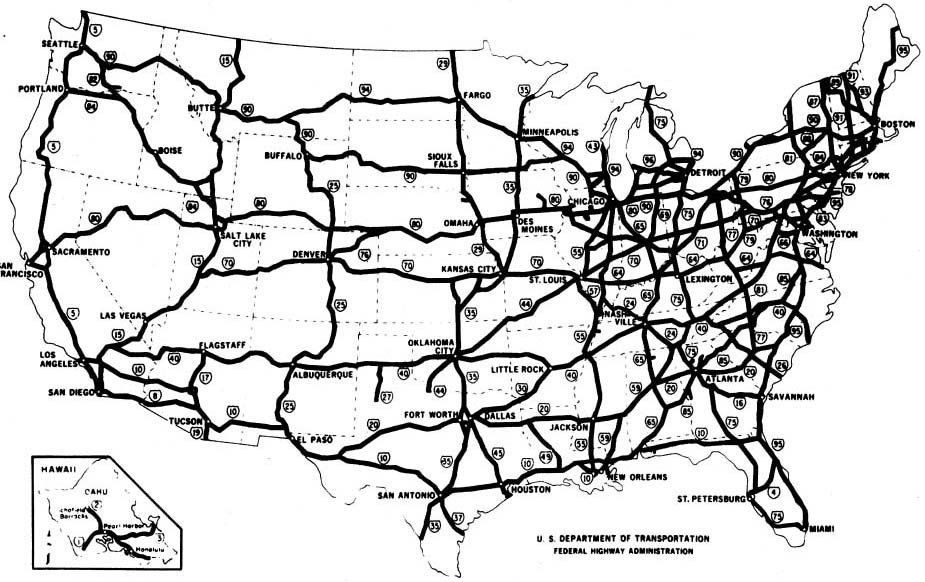 I'm about to head to Santa Fe, New Mexico from Tahlequah, Oklahoma next week. My oldest son is graduating from the Santa Fe Indian School. I've spent a lot of time on I-40 over the years. I grew up between Tahlequah and Lawton, OK, but moved out to Santa Fe, NM and spent 10 years out there before moving back to Tahlequah. My oldest three kids grew up out there.Staring at that road for long periods gives you opportunity to contemplate life's many questions. Not that I need to stare at a road to do that. My brain is hardwired for such reflection so a cup of coffee is enough to get me going. But as I've thought about the above question over the years I've attempted to apply several different metaphors to better grasp power dynamics in group formations.
I'm about to head to Santa Fe, New Mexico from Tahlequah, Oklahoma next week. My oldest son is graduating from the Santa Fe Indian School. I've spent a lot of time on I-40 over the years. I grew up between Tahlequah and Lawton, OK, but moved out to Santa Fe, NM and spent 10 years out there before moving back to Tahlequah. My oldest three kids grew up out there.Staring at that road for long periods gives you opportunity to contemplate life's many questions. Not that I need to stare at a road to do that. My brain is hardwired for such reflection so a cup of coffee is enough to get me going. But as I've thought about the above question over the years I've attempted to apply several different metaphors to better grasp power dynamics in group formations. The rules of road can be transferred to the subtle social rules subconsciously agreed upon between group members. As I sit behind the wheel and watch the road pass me by, I'm constantly aware of the rules of road and which will keep me safe. When you're going 75 mph or more you pay close attention to what's going to keep you safe.It's not that I'm always going to abide by those rules. I'll speed anywhere from five to fifteen miles over the speed limit, as long as there are no police officers around. And I'll not use a blinker if there are no other vehicles around. Things that make sense to me but don't coincide with the established rules.It's not that we've all agreed to abide by these rules. It's that we've all chosen to utilize the road. Psychologically we feel it's the safest way to get where we are going. If at the onset we chose to use the system, then we agree to give our power to it. If we're driving and we find there are certain people who are getting special treatment and are not penalized or people who are traveling in worse or better vehicles, we expect the rules of the road or the people who enforce those rules to make things right. We expect people who have already given over their power to the system to change the system.
The rules of road can be transferred to the subtle social rules subconsciously agreed upon between group members. As I sit behind the wheel and watch the road pass me by, I'm constantly aware of the rules of road and which will keep me safe. When you're going 75 mph or more you pay close attention to what's going to keep you safe.It's not that I'm always going to abide by those rules. I'll speed anywhere from five to fifteen miles over the speed limit, as long as there are no police officers around. And I'll not use a blinker if there are no other vehicles around. Things that make sense to me but don't coincide with the established rules.It's not that we've all agreed to abide by these rules. It's that we've all chosen to utilize the road. Psychologically we feel it's the safest way to get where we are going. If at the onset we chose to use the system, then we agree to give our power to it. If we're driving and we find there are certain people who are getting special treatment and are not penalized or people who are traveling in worse or better vehicles, we expect the rules of the road or the people who enforce those rules to make things right. We expect people who have already given over their power to the system to change the system. What's peculiar is once we've started on a singular path, mimesis keeps us locked into the system. We can pass all this landscape and watch as potential for freedom passes us by at every second of the day and we can still choose to follow the rules of the road. Why? Because these roads give us options. We can turn left and right and follow whatever road we want. The system is what gives us our options. The system lays out the roads. Social psychology dictates that we cannot desire solely on our own. Let me say that again: We cannot desire solely on our own. We know what to do for basic survival, like eat, drink, and find shelter. Once those basic needs are taken care of, people do not know what to do with themselves. We need other people to tell us what to desire. We need options. The roads are paved and laid out in front of us before we are born.The current corporate philanthropic venture of supporting "cradle to career" programs speaks best to how human programming works. We are taught from infancy to build certain characteristics, the rich have creative freedom while the poor learn rote behavior, but both are geared toward "staying on the road" and "maintaining the road as the only viable option."Parents want the best for their children (I should know I have six) so we teach our children those characteristics and believe this is the best modality for survival. What we don't consider is that we--ourselves--have been trained to desire the system we've been born in. It doesn't necessarily mean it's the best. It just means it's what we know. We get hints of that when we see certain people of certain communities mangled in crashes alongside the road. In disproportionate numbers. But we are so bought into the system, we assume the police are going to do the right thing and take care of those people and somehow the rules of the road will keep everyone safe. And we just keep driving by. Never taking action ourselves to stop and help. And we teach our children to do the same.
What's peculiar is once we've started on a singular path, mimesis keeps us locked into the system. We can pass all this landscape and watch as potential for freedom passes us by at every second of the day and we can still choose to follow the rules of the road. Why? Because these roads give us options. We can turn left and right and follow whatever road we want. The system is what gives us our options. The system lays out the roads. Social psychology dictates that we cannot desire solely on our own. Let me say that again: We cannot desire solely on our own. We know what to do for basic survival, like eat, drink, and find shelter. Once those basic needs are taken care of, people do not know what to do with themselves. We need other people to tell us what to desire. We need options. The roads are paved and laid out in front of us before we are born.The current corporate philanthropic venture of supporting "cradle to career" programs speaks best to how human programming works. We are taught from infancy to build certain characteristics, the rich have creative freedom while the poor learn rote behavior, but both are geared toward "staying on the road" and "maintaining the road as the only viable option."Parents want the best for their children (I should know I have six) so we teach our children those characteristics and believe this is the best modality for survival. What we don't consider is that we--ourselves--have been trained to desire the system we've been born in. It doesn't necessarily mean it's the best. It just means it's what we know. We get hints of that when we see certain people of certain communities mangled in crashes alongside the road. In disproportionate numbers. But we are so bought into the system, we assume the police are going to do the right thing and take care of those people and somehow the rules of the road will keep everyone safe. And we just keep driving by. Never taking action ourselves to stop and help. And we teach our children to do the same. The more times you stop. The more you are no longer afraid of the wilderness. The more you will change mimesis. We can show people how to travel off the beaten path by our own actions. If social psychology is correct and we do not know how to desire solely on our own, then it is up to us to show people how to desire a different direction. More importantly, show people there is nothing to be afraid of. Fear confines us to the rules of the road. But to be fearless, stop the vehicle, and take steps into the wilderness can give us options we've never conceived . Who knows? Maybe those options won't leave anyone mangled. The road we're on has historically proven there will always be victims. Break away and do something different. Step away from the "ho-hum it's been done," and reconstruct mimetic design.
The more times you stop. The more you are no longer afraid of the wilderness. The more you will change mimesis. We can show people how to travel off the beaten path by our own actions. If social psychology is correct and we do not know how to desire solely on our own, then it is up to us to show people how to desire a different direction. More importantly, show people there is nothing to be afraid of. Fear confines us to the rules of the road. But to be fearless, stop the vehicle, and take steps into the wilderness can give us options we've never conceived . Who knows? Maybe those options won't leave anyone mangled. The road we're on has historically proven there will always be victims. Break away and do something different. Step away from the "ho-hum it's been done," and reconstruct mimetic design.
Support a Native owned Etsy shop, Allies United, where I offer unique merch for allies of social justice movements, like MMIW, Native Lives Matter and Black Lives Matter. Take a look inside my Etsy shop here: etsy.com/shop/AlliesUnited.
(Works Cited: The images were borrowed from Wikimedia Commons, PxHere, nps.gov, and Wikipedia.)
Rewind Oscar's Tape: The Making of an Introverted In'din Nerd
That's how far back we're about to go. I'm going to use a simile only a certain generation will understand. Remember tapes? It kind of sounds odd to say now. Tapes. Sounds like a prehistoric infection. If my kids overheard me ask someone if they "had tapes" when they were a teenager, they would think it was an STD. Like an old school slang term for gonorrhea. But I digress, as usual. I'm about to rewind my tape and take young and old back to my days as an introverted neophyte surviving on southern sweet tea and tapes.
 You could say it was exacerbated by the abuse from my father, but I had a hard time socializing. The last grade I completed was the sixth grade. I dropped out of school at the age of thirteen years old. How does a thirteen year old go missing from the public school system without notice? You might ask. Well there wasn't much expectation for us Natives to do anything other than fail in life so when I stopped going to school, my mother withdrew me, and the school system never asked any questions.
You could say it was exacerbated by the abuse from my father, but I had a hard time socializing. The last grade I completed was the sixth grade. I dropped out of school at the age of thirteen years old. How does a thirteen year old go missing from the public school system without notice? You might ask. Well there wasn't much expectation for us Natives to do anything other than fail in life so when I stopped going to school, my mother withdrew me, and the school system never asked any questions.
I'd spend months without interacting with anyone other than my mother and the two grandmothers I lived with. I spent the majority of my time playing video games like Rygar, Contra, and Zelda on my Nintendo. When I wasn't playing video games I was reading books (Stephen King and fantasy novels like Dragonlance) or I was listening to gangster rape or writing bizarre stories of great imagination. In other words, I was anywhere but here on planet Earth.
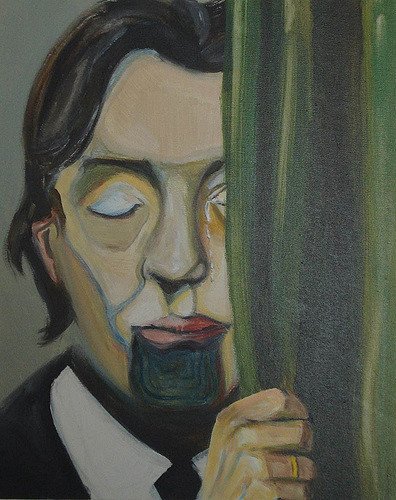 I'd come out of my introverted trance of escape when I'd go visit my cousin, Quincy, in Lawton, Oklahoma. My family out there was very active in Kiowa and Comanche cultural activities so I'd get a good dose of culture and community. My aunt, Linda, is like a mother to me and her husband, Uncle Butch, was a father figure when I didn't have one.
I'd come out of my introverted trance of escape when I'd go visit my cousin, Quincy, in Lawton, Oklahoma. My family out there was very active in Kiowa and Comanche cultural activities so I'd get a good dose of culture and community. My aunt, Linda, is like a mother to me and her husband, Uncle Butch, was a father figure when I didn't have one.
Similarly, I had a close friend in Tahlequah, Brandon, who would bring me out of isolation on the occasional weekends. He was extroverted and knew a lot of people in Tahlequah. Through him I could pretend to be normal for short time periods. His mother, also Linda, was another mother figure in my life. Brandon's family took me under their wing and I had time periods where I did family type activities with them.
I was raised by a single mother who was undiagnosed with Asperger's syndrome. She is very intelligent and highly calculated, but she does not have the social skills you would want a mother to have. Her reasoning is more logical and practical. She can get overstimulated by social environments so she wasn't trying to take any of her children to community or cultural functions. If it wasn't for the above mentioned individuals then I would have never had opportunities to socialize.
I fall under the umbrella of Asperger's syndrome, but I'm not as far on the spectrum to full Asperger's as my mother. I can understand (now) how my mother thinks and looks at the world. I don't criticize her because I understand she is biologically constructed to be the way she is. In fact, I have my level of intelligence and high inclination toward creativity because of my mother's genetics. A lot of people say I look like her and act like her. I write fiction. My mother does traditional beadwork. I play the guitar. My mother hand makes traditional quilts. While we have chosen different skills, we are the same in intelligence and creativity. Which are both symptoms of Asperger's.
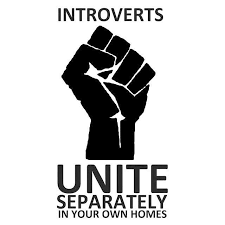 Certainly my introvertedness can be contributed to a number of aspects in my childhood, but I've had a lot of jobs in my adult life where I was taught to be extroverted. I've taught English classes at the University of Oklahoma, and I've facilitated experiential education programs with a hundred participants. I don't shy away from attention. In fact, I enjoy attention, but I'm not competing to get it.
Certainly my introvertedness can be contributed to a number of aspects in my childhood, but I've had a lot of jobs in my adult life where I was taught to be extroverted. I've taught English classes at the University of Oklahoma, and I've facilitated experiential education programs with a hundred participants. I don't shy away from attention. In fact, I enjoy attention, but I'm not competing to get it.
As you get older you get more comfortable in who you are. I'm an artist and an intellectual. It may be by genetic and environmental design but it is who I am. I'm content. I don't desire to be anything else. It'd be like asking a shark to be lion.
Support a Native owned Etsy shop, Allies United, where I offer unique merch for allies of social justice movements, like MMIW, Native Lives Matter and Black Lives Matter. Take a look inside my Etsy shop here: etsy.com/shop/AlliesUnited.
Boxes Echo Eternal Conformity
We love the sound of our own voices, and there's a condition associated with narcissism that calms people when they look at pictures of themselves (if you've ever wondered why we take so many selfies). The same goes for values. We like to hear our own values echoed back to us. If we took a real look at our circle of friends we'd find people who have the same value system. Yeah, there might be some differences in opinion, but no deal breakers. Just echoes of eternal conformity.
 I get agitated when I feel comfortable. I'm not sure why. Maybe I'm genetically predisposed to nonconformity (as my Aspie profile seems to dictate). Because of this I tend to like being in uncomfortable situations. I like being the odd one out. I don't make it into people's circle of friends. Living a life on the periphery leaves me with a life lived under the bus, true, but I wouldn't have it any other way. If someone else doesn't disrupt my normalcy, I'll disrupt it myself, and no one wants that because it's not pretty.
I get agitated when I feel comfortable. I'm not sure why. Maybe I'm genetically predisposed to nonconformity (as my Aspie profile seems to dictate). Because of this I tend to like being in uncomfortable situations. I like being the odd one out. I don't make it into people's circle of friends. Living a life on the periphery leaves me with a life lived under the bus, true, but I wouldn't have it any other way. If someone else doesn't disrupt my normalcy, I'll disrupt it myself, and no one wants that because it's not pretty.
 Life on the periphery offers perspectives outside the box (when I say box I'm meaning myopic points of view), and I tend to analyze power structures and how people try to control other people. I'm not sure why I do this. I could focus on a million other things, but for some reason I have this moral (maybe overly righteous) compass that is insulted by destructive human actions (another Aspie syndrome). I understand and don't understand why we destroy each other. Because of this my brain is constantly trying to discover solutions to our worst human tendencies. I want to fix populations, systemically, to stop destroying, ultimately, themselves.
Life on the periphery offers perspectives outside the box (when I say box I'm meaning myopic points of view), and I tend to analyze power structures and how people try to control other people. I'm not sure why I do this. I could focus on a million other things, but for some reason I have this moral (maybe overly righteous) compass that is insulted by destructive human actions (another Aspie syndrome). I understand and don't understand why we destroy each other. Because of this my brain is constantly trying to discover solutions to our worst human tendencies. I want to fix populations, systemically, to stop destroying, ultimately, themselves.
 That exposes where my own control issues coincide with the rest of the population. I'm not a saint and definitely not a purist. The evangelical engine doesn't only exist in major religions, but can speak to a quality in certain people to want other people to stop doing terrible things. But I like to think I also exist primarily on the periphery of myself, because I'm real good at self reflection. I'm good at criticizing myself and my own thought processes. I'm okay with being wrong, because being wrong is uncomfortable and that's the state of being I'm most comfortable in.
That exposes where my own control issues coincide with the rest of the population. I'm not a saint and definitely not a purist. The evangelical engine doesn't only exist in major religions, but can speak to a quality in certain people to want other people to stop doing terrible things. But I like to think I also exist primarily on the periphery of myself, because I'm real good at self reflection. I'm good at criticizing myself and my own thought processes. I'm okay with being wrong, because being wrong is uncomfortable and that's the state of being I'm most comfortable in.
 If I lived in a box of echoes, if I'm just as subject as anyone else, then I'd live in a box of echoes that disrupts other echoes, and subsequently other boxes. Maybe in my desire to stop destruction I am a destroyer, and my reflection is too ugly to look at because I don't want to realize it takes the collapse of one universe to begin the expanse of another, to rebuild one box we have to use the bloody walls from one taken apart. Maybe I want to keep my hands clean, and keep your hands clean, but in doing so...maybe it takes multi-unanimous conformity. Of which I cannot in good conscience participate.
If I lived in a box of echoes, if I'm just as subject as anyone else, then I'd live in a box of echoes that disrupts other echoes, and subsequently other boxes. Maybe in my desire to stop destruction I am a destroyer, and my reflection is too ugly to look at because I don't want to realize it takes the collapse of one universe to begin the expanse of another, to rebuild one box we have to use the bloody walls from one taken apart. Maybe I want to keep my hands clean, and keep your hands clean, but in doing so...maybe it takes multi-unanimous conformity. Of which I cannot in good conscience participate.
Support a Native owned Etsy shop, Allies United, where I offer unique merch for allies of social justice movements, like MMIW, Native Lives Matter and Black Lives Matter. Take a look inside my Etsy shop here: etsy.com/shop/AlliesUnited.
The Art of Running Into Flames
When I think about creativity, or the impulses to create, and how there is a certain bravery or cowardice involved, I think of forest fires. You see, my cousins were fire fighters for the Kiowa Tribe of Oklahoma. I love it when they regale me with stories of their adventures and sometimes these are about disaster relief, like following Hurricane Katrina, and other times they are about fighting large forest fires in Colorado or California. They tell me, "If the wind catches the flames and rushes the fire toward you, you have to decide: are you going to run through the flames?"
 On the other side of the fire is safety. But you have to have a working knowledge of how fire thinks and the natural elements and maybe even the cosmos.
On the other side of the fire is safety. But you have to have a working knowledge of how fire thinks and the natural elements and maybe even the cosmos.
Creativity is the same, or why we create. I think of this stuff often. Usually in early morning hours when I'm drinking my coffee. But this morning I thought about creativity and how to create strong fiction. I thought about being vulnerable and telling on yourself. This made me think of artists having to face the worst parts of themselves.
I don't know if this is an act of bravery or an act of cowardice. It seems I'm creative out of survival and in coping with the traumas of life I create. I play with my toys and pretend the world isn't falling apart. But in that pretend I'm also facing the thing I'm hiding from. As I write or play guitar or paint on canvas or sing a song I have to confront the trauma in order to be my most creative.
For the story to be perfect, I have to be honest about who I am and what I was and who I'm becoming. I have to tell on myself. I have to confront not only those clichéd demons but more importantly my victimhood.
I'm running into the flames, whether out of instinct or awareness, I know on the other side of the flames there's safety. But is it an act of bravery or cowardice? Am I running into the flames to save myself?
Nonetheless, either way, I create.
Support a Native owned Etsy shop, Allies United, where I offer unique merch for allies of social justice movements, like MMIW, Native Lives Matter and Black Lives Matter. Take a look inside my Etsy shop here: etsy.com/shop/AlliesUnited.

